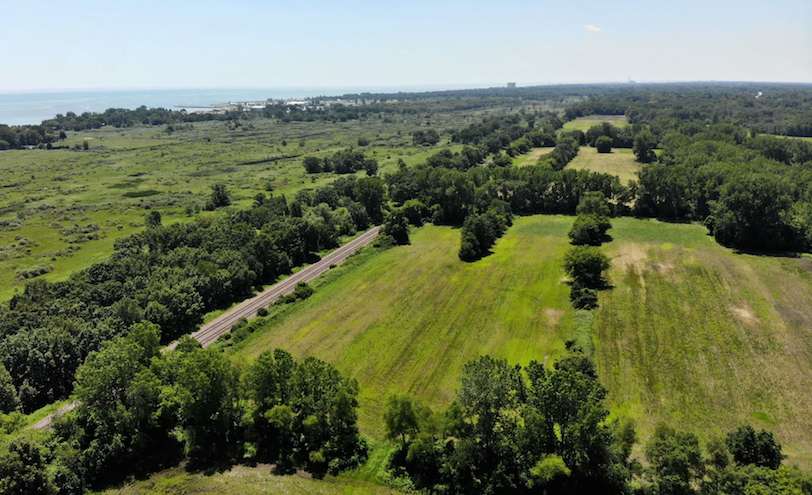In spite of the slowdown in the Nigerian economy, investors, especially those with patient capital and long term view of the market, are still committing money into the country’s investment market with many preferring to invest in property which is considered a more secure asset class.
This explains why in the first half of 2019, land reprised its role as a stable investment, with its price rising year-on-year in many parts of Nigeria, especially Lagos where emerging destinations were the toast of investors and sundry buyers.
Within the same period, residential development activities witnessed marginal improvement with government’s housing development programmes gaining traction more than ever before.
In Lagos, land values appreciated sharply along the Agungi – Abraham Adesanya – Sangotedo axis and this is understandable. Price rise is always a function of demand. This axis is in high demand as they border the Lekki Free Trade Zone (LFTZ) which has many on-going developments.
This means that land prices in the axis are pushed up by speculators with eyes on those developments which include the Dangote refinery project and other anchor projects in the zone as they near completion.
The axis is seen to have growth potential as land is demanded for housing, industries, commercial real estate development such as retail and office space; schools and other business activities.
Northcourt Real Estate’s half-year 2019 market report shows that land price in Abraham Adesanya area has risen by 50 percent, year-on-year, from N24,000 per square metre in 2018 to N36,000 per square metre in 2019. Sangotedo recorded an increase of 7 percent from N28,000 per square metre in 2018 to N30,000 per square metre in 2019.
According to the report, land price in Ikoyi and Victoria Island also rose significantly within the period under review. Ikoyi saw 24 percent price rise from N363,000 per square metre in 2018 to N450,000 per square metre in 2019. Victoria Island had a 13 percent price hike from N300,000 per square metre in 2018 to 340,000 per square metre in 2019.
On the Lagos Mainland, Magodo, an upper middle class settlement in the city, led price increase at 16 percent, rising from N110,000 per square metre in 2018 to N130,000 per square metre in 2019. Ikeja GRA recorded marginal increase of 8 percent from 261,000 per square metre in 2018 to N240,000 per square metre in 2019.

Although investment thinking in property is shifting with some investors opting to buy assets out of the country and many looking to sell local assets, there has been a marginal increase in activities in the residential property sub-market.
Market conditions, especially vacancy rates, have improved but not yet where the market should be. In Port Harcourt, vacancy rates have moved, but only slightly, when compared with end of 2018.
“Old GRA, GRA Phases 1, 2 and 3 recorded vacancy rates of 7 percent, 9 percent, 9 percent and 15 percent respectively. Abuja’s Apo and Gwarimpa are 14 percent and 2 percent vacant. Ikoyi and Victoria Island in Lagos state are respectively 41 percent and 23 percent vacant,” Ayo Ibaru, Director Real Estate at Northcourt confirmed.
According to him, the federal government’s National Housing Plan to construct 536 units in the Northern parts of the country, even though below the expectation of analysts, made some progress. He said that developments were based on the study of what would fit best with the prevailing culture.
The FCT’s quota in the development amounted to 72 units; Kogi, Kwara, Nasarawa and Benue have 76 units each while Niger and Plateau have 80 housing units each. Added to this is the ₦3.7 billion that has been committed by the Federal Government to the completion of the Zuma Housing Project in Abuja expected to be commissioned by Q2 2019.
A major development in the market as highlighted in the report is on how co-working space initiative has continued to grow as business owners are unable to meet up to the dollar rent obligations for Grade A office space.
Ibaru noted that Nigeria’s commercial real estate market is going green. He said that most ongoing prime office developments, or those that have been delivered in recent years, are a testament to the fact that green buildings have come to stay.
“Within the period too, the US government acquired about 50,000 square metres of land in Eko Atlantic City for the Consulate’s new head office,” he said, adding, “a 21-storey smart office tower is being constructed in Uyo, Akwa Ibom state at an approximate cost of ₦19 billion funded via a PPP; upon completion, it is expected to house leading oil services firms.”.
Source: Businessdayng





